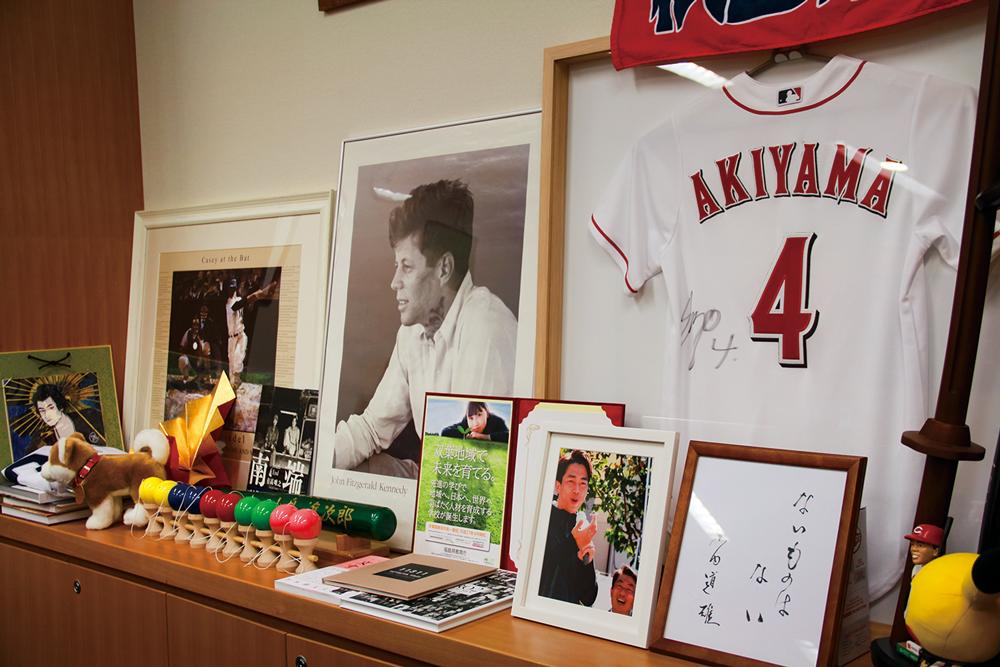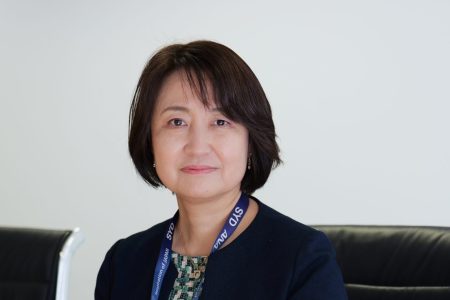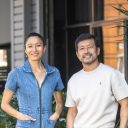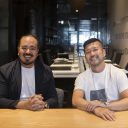*This article is a repost of December 2022’s article
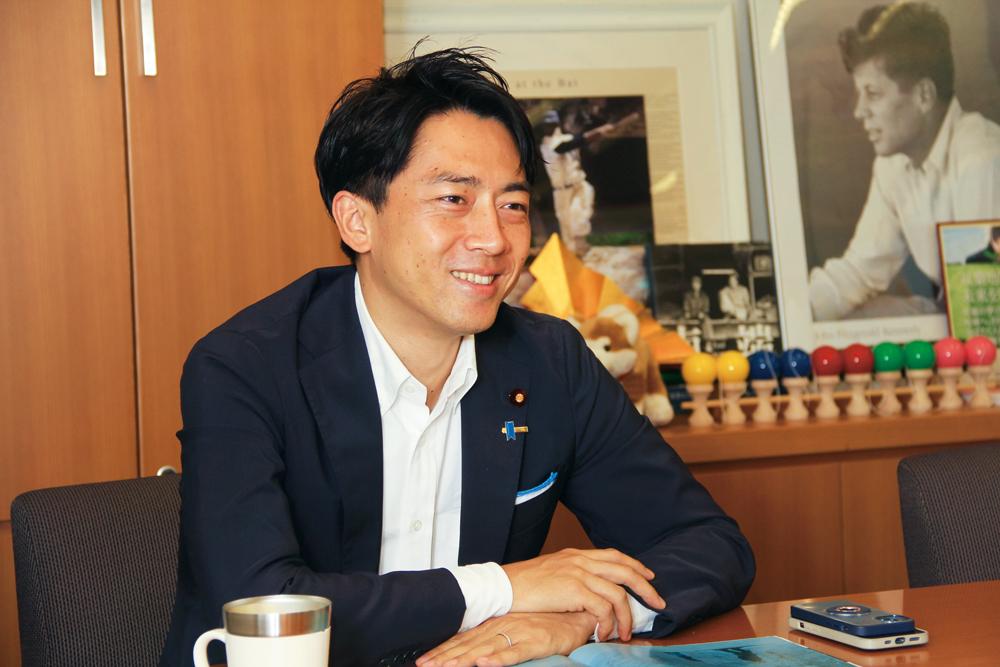
In Conversation Vol.18
In this series, Yoshinori Sakuno, founder of the Japanese cross-cultural marketing company doq® and current chairperson of Nichigo Press, conducts business dialogues with key figures in Japan-Australia relations. This time, we invited Shinjiro Koizumi, a prominent Japanese politician who visited Australia in August 2022 as part of a program sponsored by the Australian Embassy in Japan.
Photography: Riko Mizumura, Editor: Kazuya Baba
PROFILE
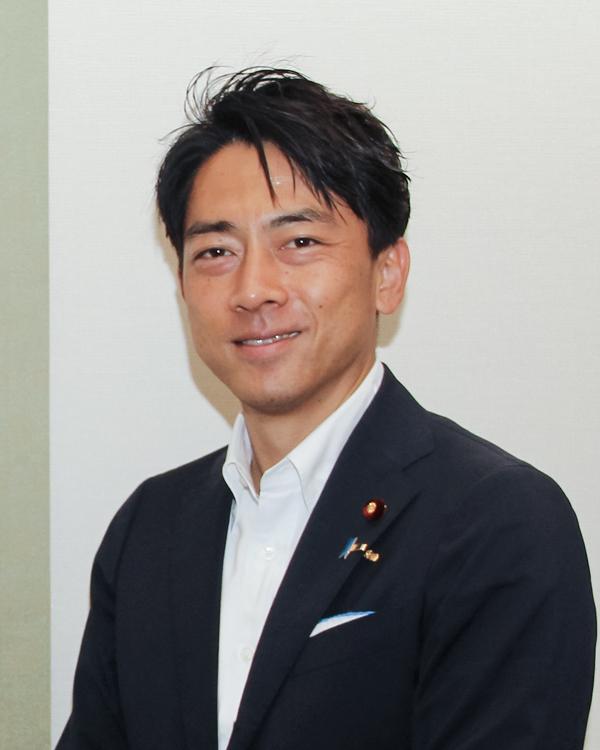
Shinjiro Koizumi
Shinjiro Koizumi graduated from the Faculty of Economics at Kanto Gakuin University and later earned a master’s degree in political science from Columbia University in 2006. After working as a research fellow at the Center for Strategic and International Studies (CSIS) in the United States, he was first elected as a member of Japan’s House of Representatives in August 2009 and is now serving his fifth term. He was appointed Minister of the Environment and Minister of State for Nuclear Emergency Preparedness in September 2019. In March 2021, he concurrently assumed the role of Minister of Climate Change. He has also held positions such as Acting Chairman of the Liberal Democratic Party (LDP) (November 2021), Chairman of the LDP’s Kanagawa Prefecture Branch Federation (April 2022), and Deputy Chairperson of the LDP Diet Affairs Committee (September 2022).
PROFILE
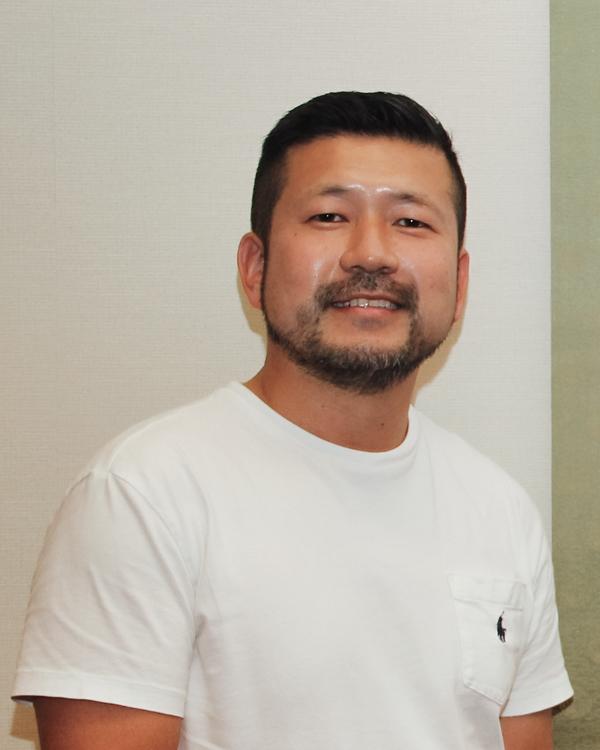
Yoshinori Sakuno
Founder and Group Managing Director of doq®. After gaining experience in the APAC and Western markets at the U.S. advertising agency Leo Burnett, he founded doq® in 2009. He holds an MBA from University of NSW’s AGSM and a Master’s degree in Digital Media Management from Hyper Island Singapore. He was a finalist for the “Ethnic Business Awards” that honour immigrant entrepreneurs and received the 2021 NSW State Export Award for the Creative Industries sector’s Best Company.
Sakuno: As this is a rare opportunity, could you please share what inspired you to enter politics?
Koizumi: Obviously, my father’s influence was significant. If it weren’t for him, I probably wouldn’t have developed an interest in politics. But more than anything, I am grateful that my father raised me with so much love and care beyond being a politician. He was always very busy and it was hard to find time to spend together, but he made it a point to be a great father. He would ask how I was doing over the phone, or find time during his busy schedule just to come home and play catch with me. When I was in high school, he would come to my baseball games, even if he had to rush from the Diet (national legislature of Japan). I am extremely grateful to my father, Junichiro Koizumi, and without that foundation, I might not have followed in his footsteps.
Sakuno: It seems as though watching your father helped to inspire you to become a politician.
Koizumi: Yes, studying abroad in America was also driven by my desire to pursue a career in politics, with my father being the main motivation. Since I was a child, my father always said, “You can’t understand Japan just by living in Japan,” which naturally drew my attention overseas. In middle school and high school, I had a private tutor, so my English grades were good, but I couldn’t actually speak the language well. That frustrated me, and I asked my tutor for conversation lessons. Interestingly, the connection to Australia started there, as my tutor’s father ran an English school that had a homestay program in Cairns, Australia. Additionally, my university’s exchange program took me to Brisbane. Those experiences fostered my relationship with Australia, and I visited a number of times during my youth.
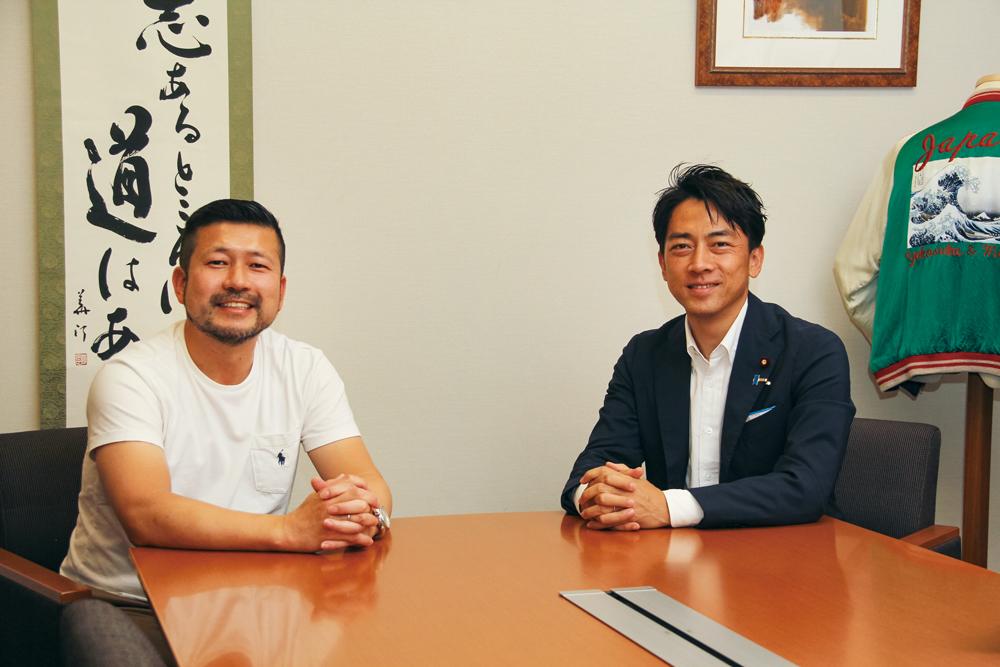
Sakuno: It’s interesting that you had ties to Australia from a young age, yet you studied in the U.S. after graduating from university.
Koizumi: Yes, I believed that as a Japanese politician, understanding the United States was essential, so I wanted to experience for myself what the United States was like as a country by actually living there. I spent about three years in the U.S, earning a master’s degree in political science in New York, and then working for a year at a think tank in Washington, D.C.
Sakuno: It must have been a tough time for you.
Koizumi: Absolutely. My time in New York has left me with so many painful memories. Even simply mentioning the place makes my chest tighten. Each class had so many assessments and, as expected, they all had to be completed in English. But it was also valuable as I experienced being in the minority, which deepened my understanding of diversity—a concept that has only been used in Japanese politics for less than a decade. I am truly glad that I realised the importance of this earlier than not. Japan needs to embrace more diverse lifestyles and ways of working. This realization came from my personal experiences, and I believe it is crucial as we move forward.
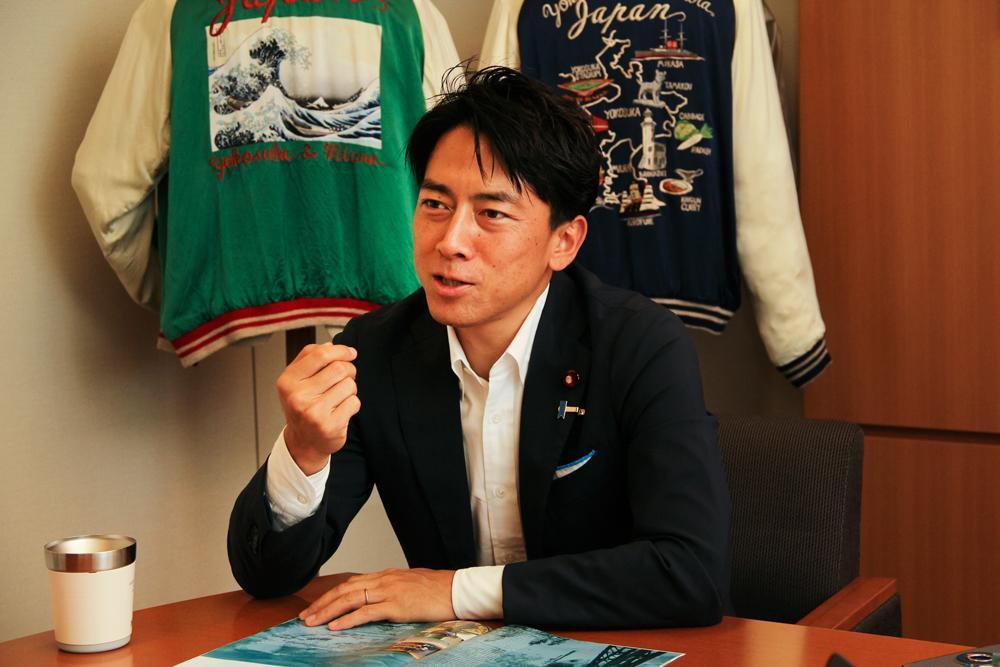
Sakuno: Your experiences as a student seem to have influenced your commitment to promoting diversity. I also lived in the U.S. before moving to Australia, and I noticed the concept of diversity differs between the two countries.
Koizumi: In what way?
Sakuno: In the U.S, I tried to assimilate—to speak, act, and think like an American to fit in. But there’s no need for that in Australia. I can be myself; I can be a Japanese person. Australia is a young country and over half of the population are first- or second-generation immigrants—perhaps that’s why the country is more open to other cultures and opinions, and have a keen interest towards other cultures. I feel like both countries value diversity, but the expectations differ.
Koizumi: That makes sense.
Our two countries perfectly complement each other
Sakuno: Did you achieve what you set out to during your August visit to Australia?
Koizumi: I have many fond memories of Australia, starting with my homestay experience. I’ve always wanted to return. The importance of Japan-Australia relations has only grown over the years. I believe Australia is a country I should focus on more in my work as it comes up as a location where I am the only person who can achieve the goal of strengthening relations. That belief led to this visit.
Sakuno: I’m thrilled to hear that as I don’t think Australia has always been at the top of Japan’s priority list. Did you notice any cultural differences during your visit?
Koizumi: What struck me the most was the genuine, heartfelt diplomacy. The hospitality was warm and sincere, making me wonder if Japan could offer the same to its foreign guests. During the visit, I had planned to have a beer with Prime Minister Albanese, though our schedules didn’t align. In Japan, it’s hard to imagine such an informal setting for a first meeting between politicians. Another example was when I met Defence Minister Marles in Tokyo; he was out for a run around the Imperial Palace and invited me to join him. I dressed myself in running gear and waited for him in the hotel lobby the next morning and we headed off with a “Nice to meet you. Let’s go.” We talked as we ran, which was a refreshing and casual way to build a relationship. This kind of informal, human-to-human interaction is something I really love about Australian diplomacy.
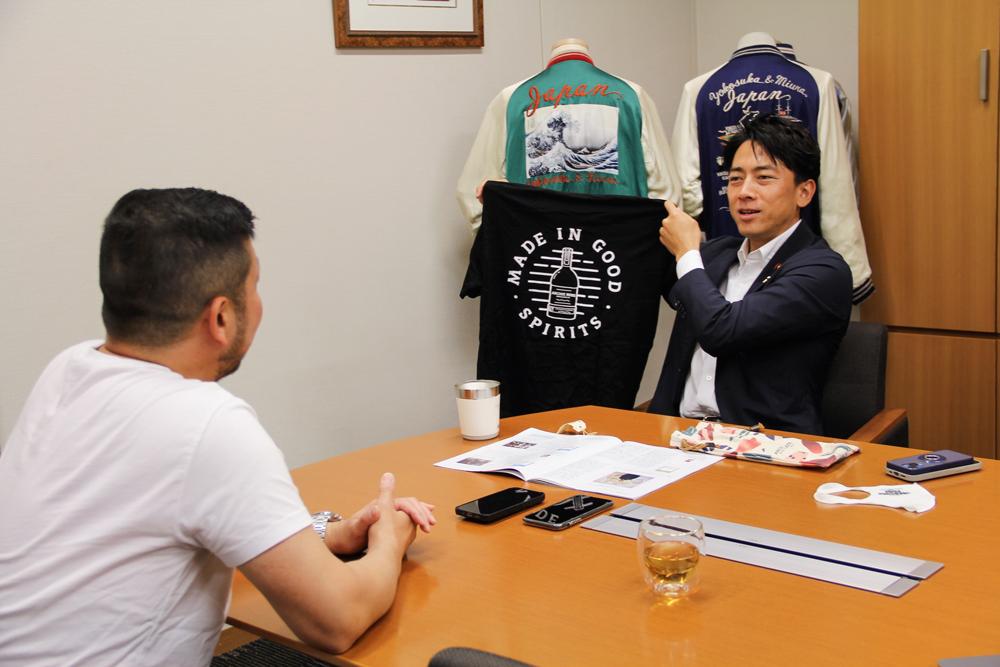
Sakuno: Dressed in running gear rather than perfectly pressed suits with badges on. The casualness, where the focus is more on the person than the position, seems to foster stronger, more direct relationships.
Koizumi: Exactly. At former Prime Minister Abe’s state funeral, I met with three former Australian Prime Ministers in a bar. I was late to the gathering as it took some time leading up to the flower offering, but when I got there, I found them in the open area rather than in a private room. They greeted me with, “What are you drinking? Beer?” It was a very relaxed, open atmosphere. In today’s world, politicians from around the globe are connected via mobile phones. When former Prime Minister Abe was fatally shot, I received calls and messages from around the world, including from Australians who asked to meet on their visit to Japan for the funeral. While we now live in an age where AI translation and the like can help to overcome the language barrier, I believe that having a basic command of English is still crucial for international political engagement. My English allows me to participate in these global conversations, and I strongly feel the value of that. The extent in how much influence one can have politically and the number of opportunities that are presented to them differs vastly depending on one’s ability to communicate in English. My overseas experiences have made me love Japan even more, and I believe in the country’s potential. During my two years as the Minister for the Environment under the Abe and Suga administrations, I was able to engage in significant work like setting the goal of achieving carbon neutrality by 2050—something only politics can accomplish. I hope the public understands more about the unique role politics can play in such transformative efforts.
Additionally, during my meeting with the three Australian Prime Ministers, I was reminded of the importance of relationships that transcend party lines. One phrase that stood out was, “We are in the same club,” highlighting the mutual respect among former leaders, regardless of past conflicts. Maintaining these connections is vital for strengthening bilateral relations, and it’s a mindset I strive to keep. Encounters like these have made me a fan of Australia, which is why I believe Japan should re-evaluate its approach. After all, Australia is only a nine-hour flight away, with a time difference of just one to two hours. Our seasons are opposite, making us perfect complements to each other.
Sakuno: That’s true in personal life and work as well. For instance, seasonal workers like ski instructors find Australia attractive because they can work year-round by moving between hemispheres. Currently, Japan is also seeking foreign instructors, so this is an area where more exchange could occur.
Koizumi: Absolutely. I strongly believe emphasising this could further increase Japan-Australia exchanges. I was also inspired by my visit to an incubation centre for startups in Australia. When Japan talks about supporting startups, the focus often shifts to Silicon Valley—such as sending a thousand people from Japan there, but I think we should pay more attention to Australia.
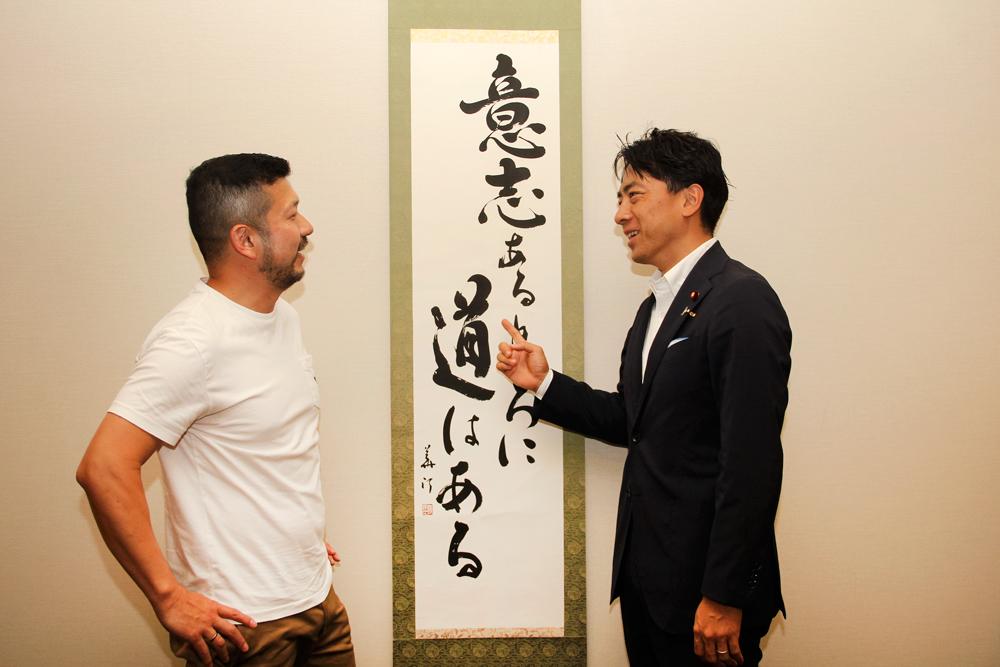
What can only be achieved by Japanese people living overseas?
Sakuno: Are there any challenges in Japan-Australia relations that you would like to tackle?
Koizumi: Strengthening security ties is a priority. Australia is a quasi-ally following the Japan-U.S. alliance, so enhancing this relationship is crucial. Another area is collaboration on decarbonisation efforts. As countries like China and Russia challenge democracy, it’s important to work with resource-rich countries like Australia to solve global issues and increase our self-sufficiency. I aim to use my connections to bolster policy and foster more personal exchanges and friendships between politicians. Australia’s political landscape is also evolving, with new players like the Greens gaining influence, so it’s essential to broaden our understanding of Australian politics.
Sakuno: We look forward to your continued leadership as a key figure in Japan-Australia relations. Finally, could you share a message with our Nichigo Press readers?
Koizumi: If I weren’t a politician, I may have ended up like readers out there who have uprooted themselves from Japan to live life in another country. I feel as though Australia is a country that adds more variety to life. The importance of the Australia-Japan relationship will only continue to grow from here on out. I’d like to ask everyone living in Australia to work together to increase the Japanese presence and work towards the greater goals of both countries. Mere politicians cannot do this alone, and it is precisely all those who live here who can help to make a difference.
Sakuno: Thank you for the wonderful message.
(4th October 2022, at First Members’ Office Building of the House of Representatives, Tokyo)
